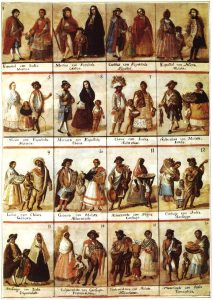I have been ranting about the importance of history—of knowing history—for years. Learning the history of Puerto Rico and its diaspora have been central to my understanding of my own story, my father’s story, and the story of millions of others whose ancestors endured the ravishes of colonialism. We, their descendants, exist as evidence of their resilience.
It’s Economic
The current racist attacks against Haitian immigrants resulting from lies being spewed by a United States Senator who is running to serve as Vice President and his fellow candidate for President of the United States, are unfortunately neither new nor surprising. The denigration of immigrants has been a practice for centuries and in the vast majority of cases, patently ignores facts and demonizes those being targeted. A bit of Haitian history: The Haitians, like many other former European colonies were forced to pay reparations to French former slave owners for decades.[1]
Reparations for former slave owners was not limited to the French. On March 22, 1873, the Spanish National Assembly finally abolished slavery in Puerto Rico. The owners were compensated with 35 million pesetas per slave, and slaves were required to continue working for three more years.[2]
The irony is that when descendants of those whose bodies and labor were stolen make a valid argument for reparations the response is typically something akin to, “That would be impossible! It would bankrupt the government!”
A second ironic (actually bitter) point is that oppressors frequently blame their victims for the results of their victimization. Creating epithets such as Welfare Mom to describe a person who has been denied access to economic opportunity, erases of the cause and effect of centuries of colonialism, economic oppression and institutional racism and sexism. Hence, the current movement to ban the study of history and the books that document or depict that history. (Keep the people blissfully ignorant and they will be complacent.)
Why does this matter?
In order to justify the act of ‘owning’ another human being it is critical to de-humanize that person, to consider them less than yourself. So, a racial value system was created establishing a persons’ worth based on the optics of their race. The location of a persons’ birth was also part of this caste system. So, if someone of ‘pure’ Spanish heritage was born in Madrid, for example, they occupied the highest rank in society. If someone of ‘pure’ Spanish bloodlines was born in Ponce, P.R., they were lower in status. If someone had a Spanish father and a Taíno mother, they were further down in ranking, and etc. The Casta Coloniale table below illustrates this clearly:

¡Viva La Resiliencia!
Every year during Hispanic Heritage Month, I endeavor to balance the depressing history of colonialism against the resilience and beauty of our culture—our multicultural culture. El Museo del Barrio in New York City has been providing a venue for demonstrating that resilience since its establishment in 1969. This year, el Museo is celebrating its Triennial with a large scale artistic survey titled, “Flow States”[3]. The exhibition will feature 33 participating artists working across the United States, Puerto Rico, and—for the first time—extending into new geographies that reflect the complexities of diasporic flows, with artists based in the Americas, the Caribbean, Europe, and Asia. In other words, the ways in which the hybrid cultures born of colonialism are fluid and interwoven and continually changing as people relocate (voluntarily and otherwise) geographically. Art as a form of resilience and resistance facilitates our evolution and our ability to emerge from legal and economic systems that perpetuate our oppression and lack of agency. The diversity and intersectionality of Hispanic culture is at the core of our resilience. We cannot assume where someone is from or what their DNA carries based on geography or optics. We can, however, find our common history, our shared experience, and our passion for creating art out of tragedy. I am really looking forward to this exhibition!
What does this have to do with DEIAB in the workplace, Wendy? EVERYTHING! The workplace is comprised of people, all of whom have a story—historia—that informs and effects how we see ourselves and others, how we communicate and interact, and how we navigate our place in the world—our self-worth. That directly impacts workplace culture, communication, and outcomes.
If you have not explored the richly diverse history of Hispanics in America, isn’t today a great day to begin?
Onward!
~ Wendy Amengual Wark
September 15, 2024
Wendy@InclusionStrategy.com
InclusionStrategy.com
[1] https://eji.org/news/haitis-forced-payments-to-enslavers-cost-economy-21-billion-the-new-york-times-found/
[2] Miller, Paul G., Historia de Puerto Rico, Chicago, Nueva York, Rand, McNally y compañía 1922. (p. 301.)
[3] https://www.elmuseo.org/exhibition/flow-states-la-trienal-2024/
